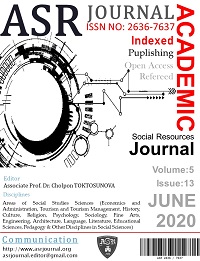A RESEARCH ON THE EFFECT OF ORGANIZATIONAL CULTURE THROUGH LEADER–MEMBER EXCHANGE (LMX) ON EMPLOYEES’ ATTITUDES TOWARD CHANGE
Author :
Abstract
Sürekli değişim içerisinde olan ekonomik ve pazar koşullarında, kurumlar rekabet üstünlüklerini korumak için stratejik, yapısal ve iş yapma şekilleri gibi farklı alanlarda değişim uygulamaları gerçekleştirmektedirler. Kotter ve Schlesinger’e (1979) göre pek çok kurum her yıl orta düzeyde bir değişim gerçekleştirirken, dört-beş yıl içerisinde rekabet koşulları, teknolojik gelişmeler, büyüme ve iş gücündeki değişimler çerçevesinde büyük ölçekli bir değişim gerçekleştirmelidir. Bu araştırmada kurumsal değişimlerin daha başarılı sonuçlar elde etmesi için çalışanların değişime gösterdiği tepkiler ve bu tepkileri etkileyen örgütsel kültür unsurları ve Lider – Üye Etkileşiminin kuruma güven aracılığıyla değişime dirence olan etkisi incelenmiştir. Ayrıca, örgütte inovatif örgüt kültürü oluşturmanın örgütte değişime direnç üzerinde etkisi irdelenmiştir. Bu çalışmaya farklı sanayi şirketlerinde çalışan yönetici ve ustabaşı düzeyinde çalışanlar katılmıştır. Analizlerin sonucunda lider üye etkileşiminin kalitesiyle kuruma güvenin ve iletişim ile inovatif örgüt kültürü arasında pozitif ilişki olduğu bulunmuştur. Diğer yandan, algılanan kurumsal değişimle yaratıcı örgütsel kültür arasında negatif bağlı ilişki olduğu tespit edilmiştir.
Keywords
Abstract
In economic and market conditions that are constantly changing, institutions are implementing change practices in different fields such as strategic, structural and ways of doing business in order to maintain their competitive advantage. According to Kotter and Schlesinger (1979), while many institutions make a medium change every year, they should make a large-scale change within the framework of competitive conditions, technological developments, growth and changes in labor force within four or five years. In this research, the responses of the employees to the change and the organizational cultural factors that affect these reactions and the effect of the Leader-Member Interaction on the resistance to change through trust in the institution were examined in order to achieve more successful results. In addition, the effect of creating an innovative organizational culture in the organization on the resistance to change in the organization is examined. This study was attended by managers and foremen level employees working in different industrial companies. As a result of the analysis, it has been found that there is a positive relationship between the quality of leader-member interaction, trust in the institution, and communication and innovative organizational culture. On the other hand, it has been determined that there is a negative relationship between concepts of attitude toward change and innovative organizational culture.





